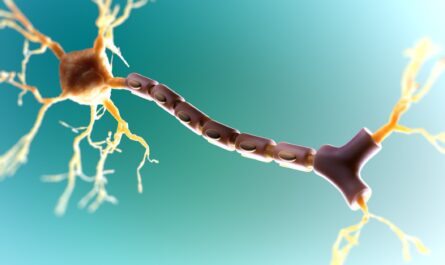A recent study has unveiled the mechanism behind a drug that has shown promise in treating specific types of cancer by targeting a protein modification that suppresses the expression of multiple tumor suppressor genes. Researchers have also demonstrated the drug’s effectiveness in reducing tumor growth in blood cancer through clinical trials. These significant findings could pave the way for extended treatments for cancer and therapies for other cancer types with similar root causes. The study has been published in the renowned journal Nature.
A team of researchers from the University of Tokyo, along with collaborators, decided to concentrate on therapies that aim at H3K27me3, a modification present on a histone protein responsible for packaging DNA and crucial for regulating gene expression. This modification occurs during methylation, a process where methyl groups, each comprising three hydrogen atoms bonded to a single carbon atom (CH3), are added to the protein.
H3K27me3, also categorized as an epigenetic modification (a heritable change in gene function that doesn’t alter the DNA sequence), has been linked to the repression of tumor suppressor genes, with the accumulation of methylated histones surrounding these genes.
Due to its gene-repressive effects, H3K27me3 has become a focal point for therapies aimed at rectifying the disrupted gene expression observed in cancer cells. While these therapies have shown efficacy in certain cancers, the exact mechanism of their action on tumor cells was previously unknown. The research team delved into characterizing the impact of H3K27me3 on cancer cells by administering valemetostat to patients with adult T-cell leukemia/lymphoma (ATL), a rare form of blood cancer. Valemetostat works by preventing the methylation of histone H3 through the inhibition of histone-modifying enzymes EZH1 and EZH2 which are responsible for increasing H3K27 levels and have been found to be abnormal in cancers.
Treatment with valemetostat led to decreased levels of H3K27me3 and the condensation of DNA, thereby allowing several tumor-suppressor genes to be expressed in cancer cells.
Makoto Yamagishi, the study’s first author and an associate professor at the Graduate School of Frontier Sciences at the University of Tokyo, highlighted the significance of developing effective treatments for blood cancers with genetic abnormalities and the necessity to explore novel therapeutic approaches.
The team’s research demonstrated that valemetostat treatment resulted in tumor size reduction and sustained clinical response in the ATL patient cohort during clinical trials. The patients were able to safely continue valemetostat treatment for over two years.
Professor Kaoru Uchimaru, another co-author of the study from the Graduate School of Frontier Sciences, emphasized the potential of targeting epigenetic mechanisms mediated by methylated histones in blood cancers with poor prognoses. Valemetostat can restore the expression of multiple tumor suppressor genes and effectively inhibit tumor growth over time.
While the study marks a significant advancement in understanding the therapeutic mechanisms of H3K27me3-targeting drugs, the researchers acknowledge that challenges persist. Cancer cells may develop resistance to these therapies over time, leading to cancer recurrence. Moreover, some cancer cells may acquire new mutations that undermine the efficacy of valemetostat, reducing long-term patient responses to the drug.
Yamagishi stressed the importance of improving treatment methods and developing combination therapies to overcome resistance mechanisms and provide sustained therapeutic benefits in the long run.
*Note:
1. Source: Coherent Market Insights, Public sources, Desk research
2. We have leveraged AI tools to mine information and compile it



